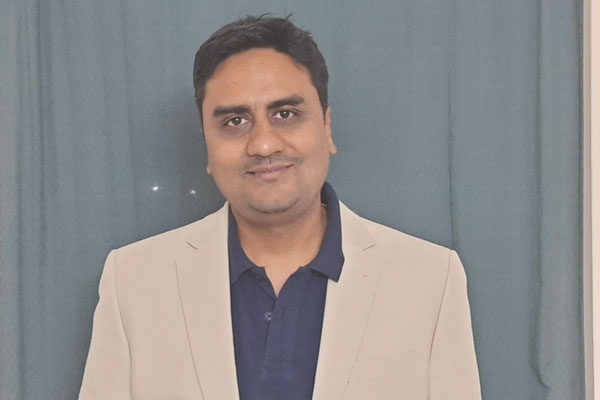By Amit Shrivastava, CTO & Co-founder, KopyKitab
The focus of higher education is advancing collective human knowledge by promoting a quest for inquiry and turning young minds into experts in their chosen fields. To be able to deliver on this goal, the responsibilities of faculty members and academic leaders have to be clearly defined and aligned with the core functions of high education. That’s what necessitates a decisive gap between the skills and roles of academic leadership and teaching faculty in colleges and universities.
The teaching staff undertakes research and service roles, in addition to their teaching responsibilities. This enables them to accumulate and disseminate the knowledge necessary to hone the skills of their students as well as share their expertise with peers and external audiences.
Academic leadership, on the other hand, operates from a place of a more systemic and situational perspective. The purview of responsibilities here primarily is fostering the capabilities and skills needed by the teaching faculty and the institution, on the whole, to deliver on their objective.
Based on these clear distinctions, let’s understand how academic leaders and teachers/researchers operate differently within the higher education ecosystem.
Learning Resources versus Financial Resources
Teachers and researchers aid their students as well as their colleagues and peers by sharing learning resources such as instructional materials, websites, books, reading recommendations and so on with their students. They may also circulate research findings, books, articles, journals, assessment tools, lesson plans within their community.
Academic leaders, on the other hand, keep the wheel of higher education turning by lining up the necessary funds. According to a 2017 survey done in the US, two-thirds of academic leaders in colleges picked alumni relations, donor relations and fundraising as their top priorities. The respondents in the survey also believed that fundraising was the most important part of the job.
Procuring funds is undoubtedly the most critical part of the job, as it facilitates research, financial aid to students, capital projects as well as remunerations. But the financial aspect of the job goes beyond just acquiring funds. Academic leaders in the higher education space also have to be adept at creating financial plans and budgets as well as closely monitoring endowments to make sure their institutions sail through in the times of economic uncertainty.
Facilitator versus Collaborator
Teachers and researchers in higher education are essentially facilitators of learning more than imparters of knowledge. By continually building upon their own knowledge base and staying ahead of the curve of developments in their specific fields, they can vastly improve students’ learning experience. At this stage, the professional journey becomes pointedly focussed on identifying gaps in students’ learning and filling them. For this, teachers and researchers need to operate as a close-knit community. Developing a simple model for spotting their students’ aspirations, for instance, can help a teacher tweak the learning structure as per the students’ goals and current knowledge and skills. When shared with others within the institution and beyond, this model can evolve into a professional plan for revamping higher education.
Working toward the same objective, academic leaders deploy collaborative leadership to reinvent higher education to suit the demands of the 21st century. This entails tirelessly working to bridge the gap between external and internal stakeholders, bringing them together to learn from one another and view themselves as partners working toward the same goal rather than adversaries. For instance, in a situation where a choice has to be made between promoting classroom teaching and lab research, it becomes the prerogative of the academic leader to make other stakeholders view the two elements as completing and not competing with one another.
Specialists versus Strategists
Teachers and researchers are specialists in their fields whose expertise in their respective fields promotes learning on various levels. As content specialists, they tie different components of the curriculum with the students’ learning needs and objectives. As instructional specialists, they devise effective teaching strategies for traditional classroom learning as well as research-based and now online models. As mentors, they train and guide novice teachers and researchers through their learning and teaching journey, helping them come into their own.
On the other end of the spectrum, academic leaders play the role of strategists. This strategic planning requires taking stock of what’s working and what’s not, identifying opportunities for improvement, using empirical data-driven evidence to devise and implement strategies for change. By using data in their strategic planning, academic leaders can get all stakeholders onboard and take a multidisciplinary to improve the institutional structure. Strong communication and an intellectual curiosity are desirable skills in academic leaders, which can help them build institutions that are resilient but not resistant to change.
To Sum Up
Academic leadership requires a more pragmatic approach that is markedly different from teaching or research-oriented skills. At the higher education level, this is more critical since this is where students want to get into life lessons for successful endeavours for the future, be it job, entrepreneurship, or further studies.
Author’s Bio:
Amit Shrivastava, CTO & Co-founder, KopyKitab
Amit Shrivastava is a B-Tech, Computer Sci & Engg from IIT BHU. He is geek by core and loves playing with new technologies. He always has been attracted to start-up ecosystem and worked with different start-ups in the last 13 years before co- founding Kopykitab. His engagement includes Novell, Andale (acquired by e-bay), Arcot (acquired by CA), Suksh systems.
His last stint was with HolidayIQ.com as CTO, where he joined the company at initial days, build the platform and team from scratch. And have been instrumental in building and scaling business, engagement & traffic. They raised Series A & B rounds (Accel Partners, Tiger Globals & MMT Finance).
He has been working with start-up ecosystem in US & India and been exposed to both side of technological approaches, successful planning and execution of building technological stacks from scratch to scalable models. He loves playing Guitar in his free time.
Linkedin: https://www.linkedin.com/in/callamits/
























































